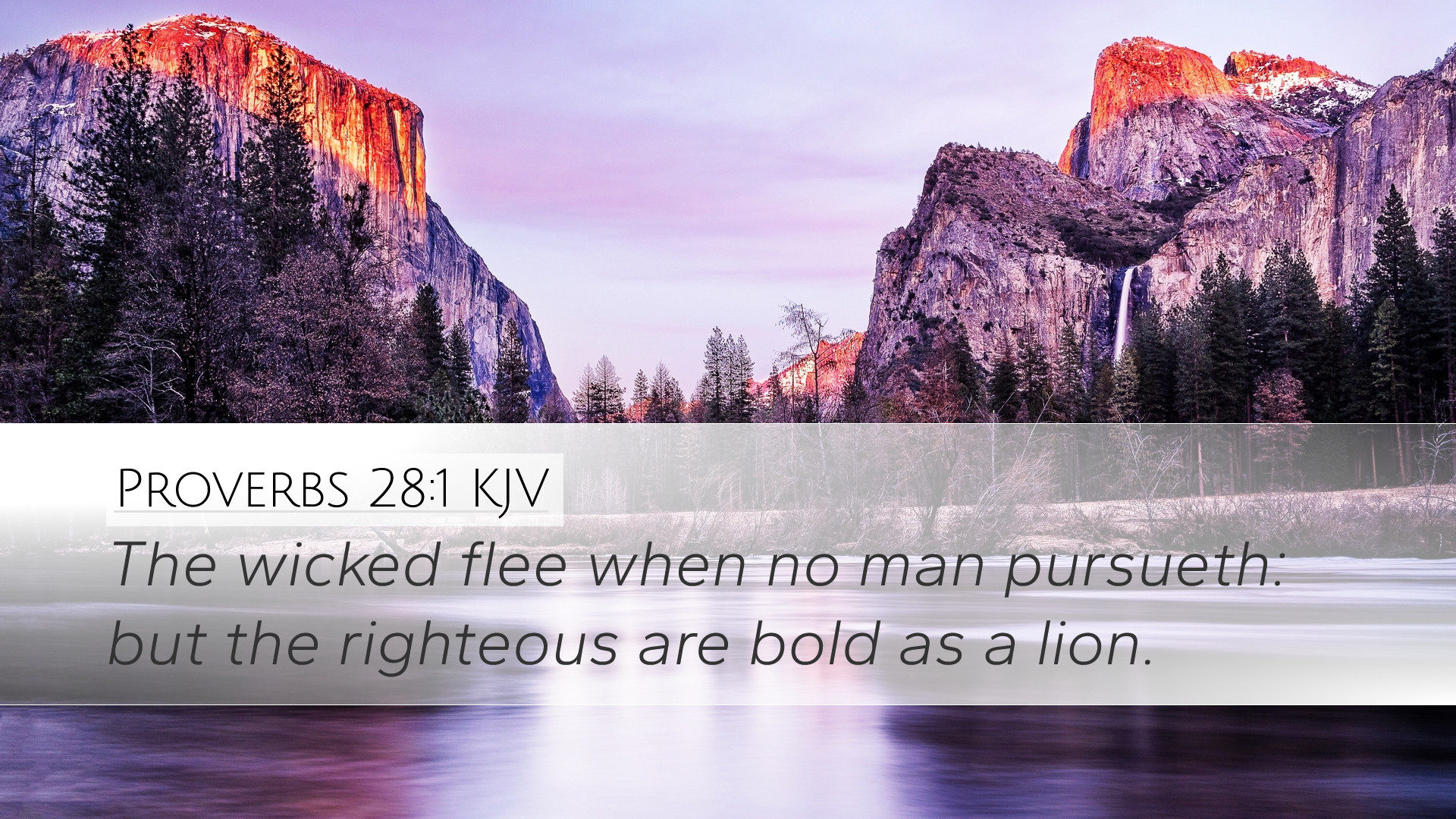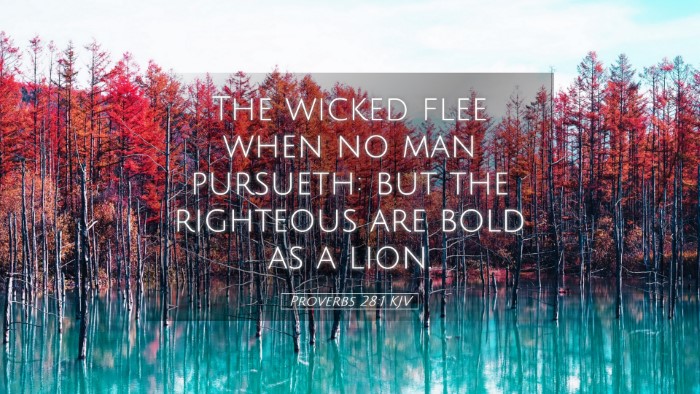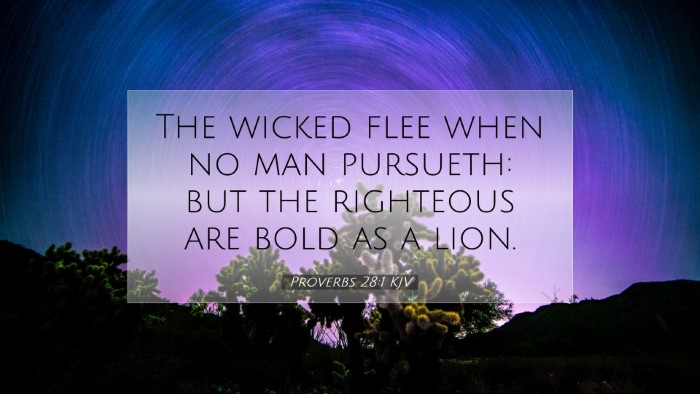Proverbs 28:1 Commentary
Verse: "The wicked flee when no man pursueth: but the righteous are bold as a lion."
Introduction
This verse contrasts the behavior of the wicked with that of the righteous, providing profound insights into the character and consequences of moral standing. Through the exploration of this text, we will delve into its theological implications, practical applications, and the overarching messages found within the wisdom literature of the Scriptures.
The Nature of the Wicked
The phrase "the wicked flee when no man pursueth" encapsulates the inherent fear and instability that characterizes the life of those who live unrighteously. As Matthew Henry notes, "The wicked are driven by their own guilt; they live in a state of constant anxiety and fear, always anticipating retribution." Their actions are not only a departure from moral law but also set them on a path of paranoia and distrust.
Albert Barnes further elucidates that the wicked's flight is indicative of a guilty conscience, one that perceives threats even in environments of safety. This highlights the psychological torment that often accompanies a life of sin, where every shadow may spark fear, as they are hounded by their own transgressions. Therefore, the wicked remain in a relentless search for escape, often leading to further moral degradation in their attempts to flee from perceived consequences.
The Assurance of the Righteous
In stark contrast, "the righteous are bold as a lion" speaks to the confidence and security that comes from living in accordance with divine principles. Adam Clarke observes that the boldness of the righteous is founded on their integrity and alignment with God's law. They are unafraid, knowing that their lives are marked by virtue and have a clear conscience before God and man.
This boldness is not only personal but is rooted in trust in God’s protection and provision. The lion, known as the king of beasts, symbolizes strength and courage, reminding the believer of their position as children of the Almighty. The righteous can approach challenges with fearlessness, characterized by a steadfast spirit grounded in faith and morality.
Theological Implications
Proverbs 28:1 offers rich theological reflections on sin, righteousness, and the nature of God’s justice. The behavior of the wicked reveals that disobedience to God’s commandments does not only lead to external consequences but deeply affects the psyche of the individual. The flight of the wicked signifies the inevitable outcome of rebellion against divine order.
Conversely, the confidence of the righteous is an affirmation of God's sovereignty and faithfulness. Their boldness is a testament to the transformative power of living according to God's will. The text thus implies a moral clarity that rewards righteousness with peace of mind and a strong sense of identity in Christ.
Practical Applications
- Self-Examination: Believers are encouraged to examine their conscience regularly. Just as the wicked live in fear, so too can Christians face insecurity if they stray from God's paths.
- Courage in Trials: The boldness of the righteous serves as a model for facing life's challenges. Pastors and leaders can encourage their congregations to cultivate a spirit of courage rooted in faith, particularly in times of adversity.
- Witness to the World: Righteous living serves as a counter-witness to a world rife with fear and turmoil. The presence of bold believers carries the potential to draw others to Christ through their confidence and peace.
- Understanding Consequences: The verse prompts a reflection on the consequences of choices made in life. Righteousness leads to a life marked by peace and purpose, while wickedness leads to fear and instability.
Conclusion
Proverbs 28:1 encapsulates the dichotomy between wickedness and righteousness, illustrating a profound truth about human nature and divine justice. The commentary from early biblical scholars resonates with the timeless message that living righteously not only aligns one with God's heart but fosters a spirit of boldness and confidence as one navigates the complexities of life.
As we reflect on this verse, it serves as both a warning and an encouragement to pursue righteousness fervently; the consequences shape our experience of joy, peace, and security in a chaotic world.


